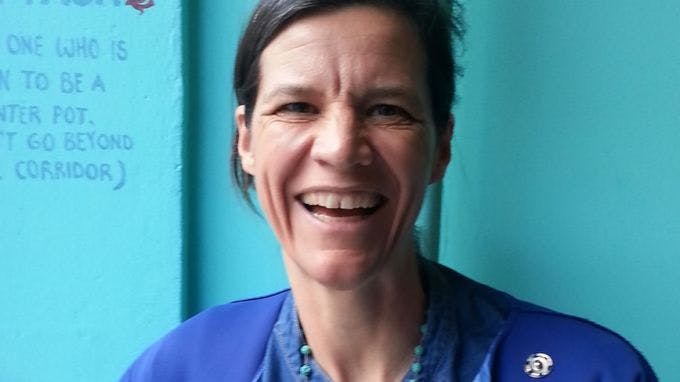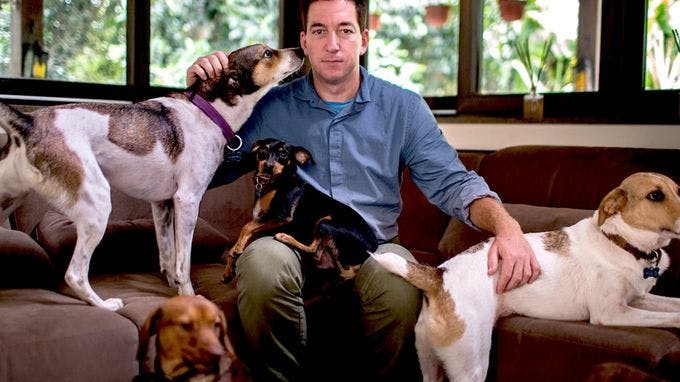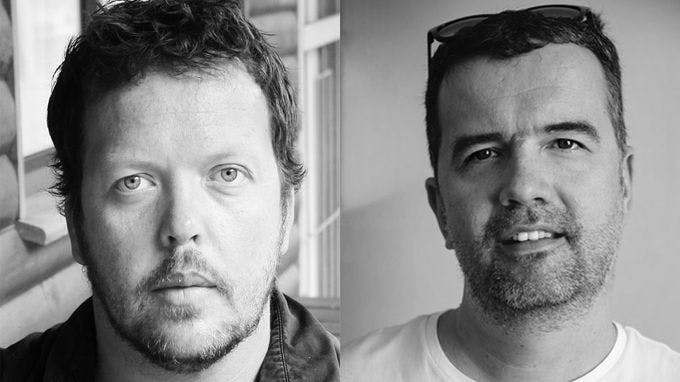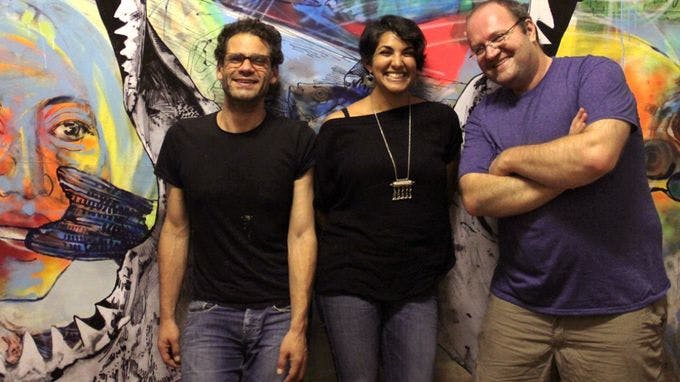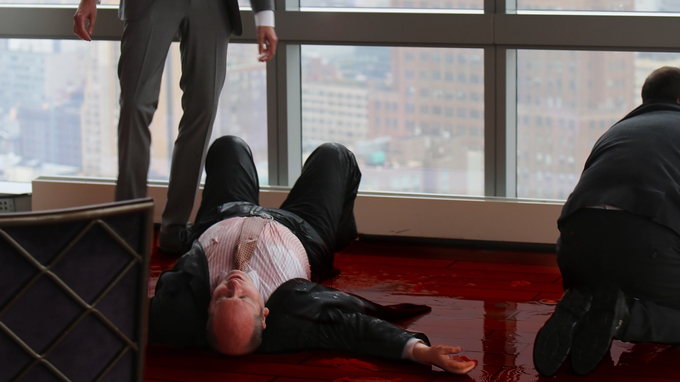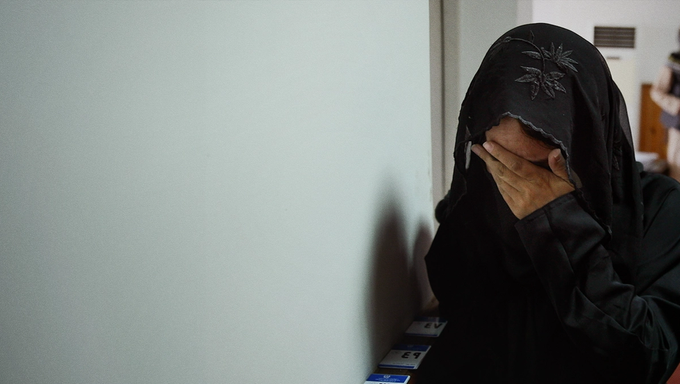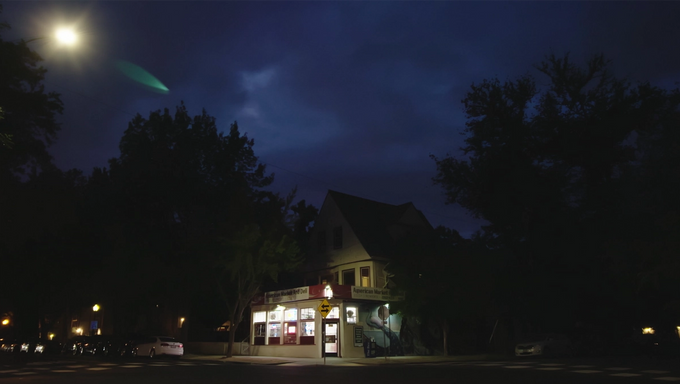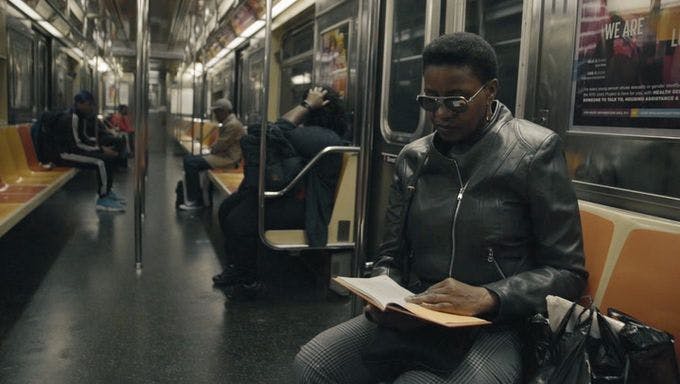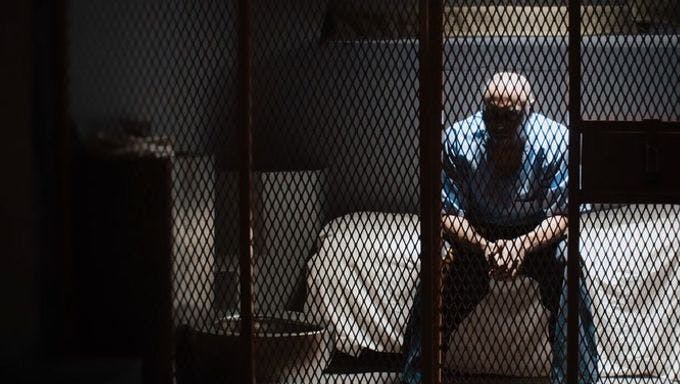Short form filmmaking is nothing new for Elizabeth Lo. In just the past three years, the Los Angeles-based director has amassed five documentary shorts, including the widely seen and celebrated Hotel 22. That 8-minute film played at numerous festivals around the world, aired as a New York Times Op-Doc, and won the 2016 Cinema Eye Award for Outstanding Achievement in Nonfiction Short Filmmaking. As exemplified by Hotel 22, which brings the viewer onto a San Francisco night bus that functions as a de facto shelter for people living on the streets, her work to date has focused on people and communities at the margins of society.
In one sense, that focus made her a good fit for The Disclosure President, her new Field of Vision film centering on Stephen Bassett, the lone U.S. lobbyist advocating around matters pertaining to Extra Terrestrials, UFOs, and related government secrets. But in another sense, as Lo discusses in the following interview, this film was a departure. Whereas her previous work approached subjects ethnographically, and with a deliberate and evocative formal rigor, here she found herself honing in on, and adapting her aesthetics to, a single and singularly complex character. Though Stephen has spent 30 years unsuccessfully fighting for the lifting of what he calls "The Truth Embargo" of government information on E.T.s, Lo's film shows how there might actually be progress under a Hillary Clinton presidency. She talked about treading into all of these uncharted territories in this candid conversation.
Let’s start with the really obvious question: How did you come across Steven? Is this something that you read about? Did you meet him? Where did it start for you?
Lo: So Field of Vision actually contacted me and told me about Steven. They had come across him in a Washington Post article where he was described as sort of like the only lobbyist on the Hill fighting for the ET issue. I read about him and I was kind of drawn to it because it seemed so different than the subject matter of my other films—disenfranchised communities, marginalized groups. But Steven’s form of marginalization was pretty foreign to me. And I knew that the kind of topic the UFO story would be, I wouldn’t be able to observational in my mode of filmmaking. That was an interesting challenge for me.
Did you have a sense of “why me” for this? Or was it more: “this is different, I like it?”
Lo: I did have a sense of “why me.” It feels kind of different. But then there was this…I started doing researching and thought about UFOs as an interesting cinematic challenge, you know, how to represent them visually, if at all. And then I went to this conference as a scout, the Alien Cosmic Expo which was in Canada, and he was going to be there. So I went there, the first day he didn’t show up because he lives out of his car, well he lives at home with supporters who house him…he doesn’t have permanent housing anywhere. I guess his car had broken into the day before his flight, and his passport was stolen….all of these things that I guess were indicative of what had happened to him from being part of this issue. I guess I’m not sure of the cause/effect of his life choices. But then he showed up…first I had a phone conversation with him, and he was very verbose and talked a lot and was very maniacal. Just had this energy about him that I thought was really interesting. Anyone with passion can be a good subject. When I met him, he was actually much kinder than my impression of him on the phone.
Was it just that he was so excited on the phone? That he went into a sort of messianic place?
Lo: Yes, he definitely had that. And so much anger. He was able to talk about in a way that was, about how the truth embargo, which was the governments supposed policy in the 1940s to contain the truth about UFOs through ridicule. He talked about it as if that was responsible for everything that’s going on in the world today. Like in terms of the Middle East, Syria…that the separation between military intelligence and the president over the UFO is what’s caused the rift within government that has enabled these wars. Him being able to extrapolate these huge societal issues that are real from this thing, Roswell and other incidents, that don’t have widely accepted evidence behind them. That compelled me. That he had a real social and political drive behind what he was doing. IT wasn’t just a fascination with aliens. He wanted to save the world and this is how he believed he could cure all the ills of the world by getting the government to reveal secret about its ET contacts. That spirit is what made me think he might be worth pursuing.
How did you navigate you interest in that passion, that engagement with your degree of belief you have in the truthfulness of what he was saying?
Lo: When I first got the call from FoV to look into him, I started to read about UFO people and books written by seemingly credible sources like Harvard professor John E. Mac called abduction. This was the book that changed Steven Bassett’s life. There were all these accounts of people—-contactees they’re called—when I started reading these books, the message in the book was beautiful one. These are people who have experienced things and are constantly ridiculed because of outer forces that discredit what they’re saying. But from this one profressor’s research, it seemed that all these contactees experiences some sort of benevolent aliens. Or aliens that had a mission to save humanity from themselves. All of these UFOs people that I was reading seemed to come from a very activist place. They saw all these political ills, and they tied them…they determined maybe aliens would come save us. There’s a kind of desperation in it. But it also was reflective of things that are happening now. The introductions of the books are very eloquently written, but then as I got further into their specific stories, I didn’t find it all that believable. At least to me I couldn’t get behind it. Then I read another book by Lesley Keen [sp] called UFOs something something and hers is a very conservative book in that it doesn’t extrapolate what seeing a UFO means. It just says there are these unidentified flying objects in the sky and all of these experts have looked into it and not many people on society know this, but 5% of these sightings cannot be explained away. And I thought, “how can we not know that 5% of UFOs don’t have any logical explanation?” But then in my head I’m really skeptical of the drawings and things that were popping up. But as this whole movement has been characterized by ridicule, and because UFO enthusiasts are so sensitive to that including Stephen, even though as I got to know this issue more in my own way, I was becoming more and more distanced from it. I still felt as a filmmaker I had an obligation to not create a piece that was taking it down. That felt wrong to me on a larger level because so much has been made ridiculing this community. In the edit it was this balance between trying to hold my own prejudices at beat because who I am to say, I have not been influenced by all the cultural factors that would lead me to not take this subject as seriously as these people do. I think it would be a more interesting viewing experience to have moments of doubt within themselves and have them wonder…are the Clintons really involved in this? Why would John Podesta, the Campaign Chairman for Hilary Clinton be talking about this issue. And question their own beliefs a little bit. Even though personally I am very skeptical.
This fascinates me when you’re honoring a point of view about which you have skepticism. And how you honor that without promoting it. You didn’t have a lot of time to manage that.
Lo: I had been making lots of cuts and showing them to friends before I turned one in to Field of Vision and in my footage I had material that showed Stephen’s character flaws. That seemed to convey that this all was about creating a legacy for himself and not about saving the world. I put together cuts that made it seem like more of a character study of someone who is flawed and fighting for somebody, but the sense was that it was undercutting him too much. So I ended up with a cut that took out all of those moments and that was the first cut I showed to FoV, where the point of view was pretty strasightfoeward and it didn’t play with any humor and it didn’t reveal any of the cracks in my experience with him. And FoV came back and said it made him seem too credible which must have been my overcompensation. The next cuts were about balancing that and how much to inject of these moments of folly.
It makes sense that this would be a productive way to go about it. Err one way, err in the other direction and then find a party in the middle.
Lo: At the same time, there are these very rare moment where I wonder if there is something bending this. What if you put out a piece that falls on the wrong side of history. These are rare moments, but that thought did occur to me. As a filmmaker you want to stay open, I think. And not shut down especially when you have the trust of whoever you’re working with. Extend him the same benefit I would extend another fringe community.
You’re dealing with point of view. The film doesn’t have to adopt that point of view, but you can still represent that. And it seems like that what this film is doing. There is a sense of…you can get deeper into a point of view than an entirely removed skeptical approach.
Lo: That’s a great way of distinguishing between adopting POV and representing it. A lot of my approach is quite averse to character-based filmmaking, maybe just because I’m not used to it or I was a little bit afraid of hanging whole films on a single person. So this was a challenge because the film was about him. Part of my reservation, especially with a short was: how do you cram in someone’s whole life story or POV in ten minutes. You’re going to muck it up somehow. Trying to make this piece at least represent some of what drives Steven and what his past and what he looks forward to, trying to squeeze that all into a short was a kind of uncomfortable process for me. But I do feel like the film as it is right now does convey just enough of how much personal life is important to the short and weaving in archivel or other issues like the presidency and politics and woven that in with his personal quirks and balance that. I don’t think his personal details would sustain a larger project.
Would you make another film about a character?
Lo: Sometimes I wonder if it’s…people have strengths and weaknesses…casting is a talent and I feel more comfortable or I feel lime my strengths are places and not necessarily telling people’s stories, but glimpsing into a physical reality more and not necessarily working with the past in explicit ways that this does. I tend to try and pick topics that are more actives. And I do have this self doubt that I can cast characters well. And I think that’s probably a shortcoming as a filmmaker and I probably should keep pursuing it even if it makes me uncomfortable. This was a really good dip into this category of filmmaking. I feel most natural when it’s…I think what also makes me feel uncomfortable when you do character-based filmmaking because your relationship becomes more intimate that navigation as a filmmaker with a person you’ve developed a bond wit, balancing your loyalty to that individual versus your loyalty to the story that you want to ell or the the reality of there world as you see it. I think that’s very hard. I think I pick topics that don’t necessarily engage that tension as much. I don’t know if that’s for better or for worse. But obviously, that’s what always challenging about this piece. I know Stephen. I have a relationship with him. Trying to balance that with the film’s objectivity out subjectivity. But if you’re not working with a single character, your loyalty’s just to the film itself. And that can be very freeing but I also see I should push myself in the other direction.
I want to talk about your approach stylistically. I’m curious about how you decided to shoot this. How this was going to look? What did you think about starting off? What there a strategy visually?
Lo: It kind of just happened organically because it was my first sort of character piece, I went to the conference and met Stephan and started following him around. I guess this another thing about working with main characters: I guess you should be able to collaborate with them more in terms of setting up shots, which is something I’m very averse to, but I had to learn this balance, when you’re following them around everywhere my camera had less control than previously where characters didn’t matter, it was just a space and my camera could just stay in place and I had control. In this situation, he had more control than the camera. In terms of his work as a lobbyist, too, a lot of his work is online, and he’s just at home, and that wasn’t necessarily stuff he wanted to reveal. Audit’s not a physical thing…all of this speculation…you can’t put a camera on to record. Even his activities as a lobbyist had happened in the past and maybe would happen in the future. There’s some states about this topic or at least his involvement . So I had to find things for him to do. And that was really challenging for me. A lot of it was sort of following him around. And because he has a very clear idea of how things should be portrayed, and also he’s extrmelet talkative that shaped the style of the film. I was just kind of reacting to him rather trying to impose style.
I imagine you’re doing a fair amount of shooting for the editing, too. Because you’re finding of way to represent things and thinking about shooting things you might need later on.
Lo: Initially I thought I might create animations to go over the live action footage because the stuff weren’t things you could film. As I was editing, animation felt like it wouldn’t necessarily match and that it might undercut it a little bit.
How are you feeling about this going out into the world in terms of your relationship with Steven?
EL: I feel like the film does strike a pretty good balance between portraying him fairly and portraying his viewpoints with how he sees the Clintons being involved and those views I am sure that he’ll have some issue with it but probably because it oversimplifies things or presents some details about his life he wouldn’t want out there. I don’t know how he’ll respond, but I hope he’ll respond positively. I don’t think the film falls into a ridiculing category in terms of its treatment of the UFO issue. Which I think he’ll feel is a positive step in terms of the media.
It sounds like you’ll have a conversation about it that’ll maybe be an extension of some other conversations you’ve had with him to date.
EL: Definitely. (...) One thing I wanted to say is how this film relates to the observational mode of filmmaking which relies less on verbal exposition. Relying so much on the audio, instead of letting the images speak for themselves was a challenge.
I think you do some nice work when you’re shooting him in the car and you’re wandering and finding other things to show that are pretty important. Like the hangers in the back of the car. What he’s saying will be important, but you’re still capturing things that are meaningful.

